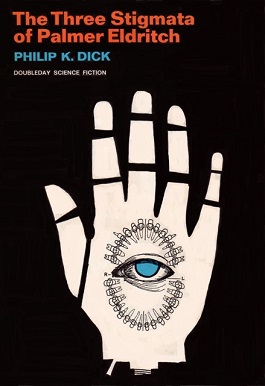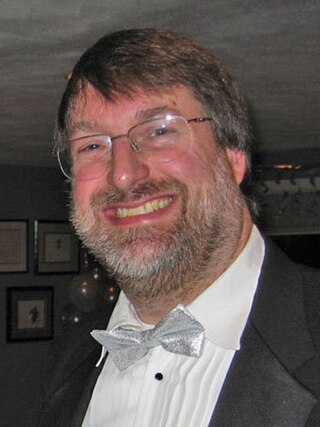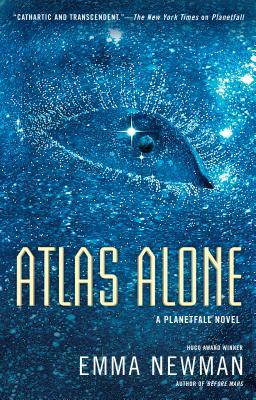
The Three Stigmata of Palmer Eldritch is a 1964 science fiction novel by American writer Philip K. Dick. It was nominated for the Nebula Award for Best Novel in 1965. Like many of Dick's novels, it utilizes an array of science fiction concepts and explores the ambiguous slippage between reality and unreality. It is one of Dick's first works to explore religious themes.

The Two Towers is the second volume of J. R. R. Tolkien's high fantasy novel The Lord of the Rings. It is preceded by The Fellowship of the Ring and followed by The Return of the King. The volume's title is ambiguous, as five towers are named in the narrative, and Tolkien himself gave conflicting identifications of the two towers. The narrative is interlaced, allowing Tolkien to build in suspense and surprise. The volume was largely welcomed by critics, who found it exciting and compelling, combining epic narrative with heroic romance.

Steven Eric Meretzky is an American video game developer. He is best known for creating Infocom games in the early 1980s, including collaborating with author Douglas Adams on the interactive fiction version of The Hitchhiker's Guide to the Galaxy, one of the first games to be certified "platinum" by the Software Publishers Association. Later, he created the Spellcasting trilogy, the flagship adventure series of Legend Entertainment. He has been involved in almost every aspect of game development, from design to production to quality assurance and box design.

Alejandro Jodorowsky Prullansky is a Chilean-French avant-garde filmmaker. Best known for his 1970s films El Topo and The Holy Mountain, Jodorowsky has been "venerated by cult cinema enthusiasts" for his work which "is filled with violently surreal images and a hybrid blend of mysticism and religious provocation".

Thomas Alan Shippey is a British medievalist, a retired scholar of Middle and Old English literature as well as of modern fantasy and science fiction. He is considered one of the world's leading academic experts on the works of J. R. R. Tolkien about whom he has written several books and many scholarly papers. His book The Road to Middle-Earth has been called "the single best thing written on Tolkien".

The Stars My Destination is a science fiction novel by American writer Alfred Bester. Its first publication was in book form in June 1956 in the United Kingdom, where it was titled Tiger! Tiger!, named after William Blake's 1794 poem "The Tyger", the first verse of which is printed as the first page of the novel. The book remains widely known under that title in the markets in which this edition was circulated. It was subsequently serialized in the American Galaxy Science Fiction magazine in four parts, beginning in October 1956. A working title was Hell's My Destination; the book was also associated with the name The Burning Spear. It would prove to be Bester's last novel for 19 years.

Planetfall is a science fiction themed interactive fiction video game written by Steve Meretzky, and published in 1983 as the eighth game from Infocom. The original release was for Apple II, Atari 8-bit computers, TRS-80, and IBM PC compatibles. Atari ST and Commodore 64 versions were released in 1985. A version for CP/M was also released. Planetfall was Meretzky's first published game, and it proved one of his most popular works and a best-seller for Infocom. It was one of five top-selling games to be re-released in Solid Gold versions with in-game hints. Planetfall uses the Z-machine originally developed for Zork and was added as a bonus to the Zork Anthology.

Cloud Atlas, published in 2004, is the third novel by British author David Mitchell. The book combines metafiction, historical fiction, contemporary fiction and science fiction, with interconnected nested stories that take the reader from the remote South Pacific in the 19th century to the island of Hawai'i in a distant post-apocalyptic future. Its title references a piece of music by Toshi Ichiyanagi.

The Shadow of the Torturer is a fantasy novel by American writer Gene Wolfe, published by Simon & Schuster in May 1980. It is the first of four volumes in The Book of the New Sun which Wolfe had completed in draft before The Shadow of the Torturer was published. It relates the story of Severian, an apprentice Seeker for Truth and Penitence, from his youth through his expulsion from the guild and subsequent journey out of his home city of Nessus.
J. R. R. Tolkien's bestselling fantasy novel The Lord of the Rings had an initial mixed literary reception. Despite some enthusiastic early reviews from supporters such as W. H. Auden, Iris Murdoch, and C. S. Lewis, literary hostility to Tolkien quickly became acute and continued until the start of the 21st century. From 1982, Tolkien scholars such as Tom Shippey and Verlyn Flieger began to roll back the hostility, defending Tolkien, rebutting the critics' attacks and analysing what they saw as good qualities in Tolkien's writing.

Atlas Shrugged is a 1957 novel by Ayn Rand. It is her longest novel, the fourth and final one published during her lifetime, and the one she considered her magnum opus in the realm of fiction writing. She described the theme of Atlas Shrugged as "the role of man's mind in existence" and it includes elements of science fiction, mystery and romance. The book explores a number of philosophical themes from which Rand would subsequently develop Objectivism, including reason, property rights, individualism, libertarianism and capitalism, and depicts what Rand saw as the failures of governmental coercion. Of Rand's works of fiction, it contains her most extensive statement of her philosophical system.

The Fellowship of the Ring is the first of three volumes of the epic novel The Lord of the Rings by the English author J. R. R. Tolkien. It is followed by The Two Towers and The Return of the King. The action takes place in the fictional universe of Middle-earth. The book was first published on 29 July 1954 in the United Kingdom. The volume consists of a foreword, in which the author discusses his writing of The Lord of the Rings, a prologue titled "Concerning Hobbits, and other matters", and the main narrative in Book I and Book II.
Chronicles of Ynis Aielle is a fantasy trilogy by American author R. A. Salvatore, published between 1990 and 2000. It comprises Echoes of the Fourth Magic (1990), The Witch's Daughter (1991), and Bastion of Darkness (2000).

Galactic Derelict is a science fiction novel by American writer Andre Norton, the second in her Time Traders series. It was first published in 1959, and as of 2012, had been reprinted in eight editions. It is part of Norton's Forerunner universe.

Emma Newman is a British science fiction and fantasy writer, podcaster and audiobook narrator. Her award nominations include the British Fantasy Award for Between Two Thorns in 2014 and the Arthur C. Clarke Award for After Atlas in 2017. Her Planetfall series was nominated for the 2020 Hugo Award for Best Series.

Planetfall is a 2015 science fiction novel by British writer Emma Newman. It was first published in the United States as a paperback original in November 2015 by Roc Books, and in the United Kingdom by Gollancz in paperback in February 2018. An audio edition of the book, narrated by Newman, was published in the United States by Blackstone Audio in November 2015, and in the United Kingdom by Orion Publishing in December 2017.

Before Mars is a 2018 science fiction novel by British writer Emma Newman. It was first published in the United States as a paperback original in April 2018 by Ace Books, and in the United Kingdom by Gollancz. An audiobook was published in April 2018 in the United States by Tantor Audio, and in the United Kingdom by Orion Publishing.

Atlas Alone is a 2019 science fiction novel by British writer Emma Newman. It was first published in the United States as a paperback original in April 2019 by Ace Books, and in the United Kingdom by Gollancz. An audio edition of the book was published in April 2019 in the United States by Tantor Audio, and in the United Kingdom by Orion Publishing.
Patrick Curry is an independent Canadian-born British scholar who has worked and taught on a variety of subjects from cultural astronomy to divination, the ecology movement, and the nature of enchantment. He is known for his studies of J. R. R. Tolkien.

Tolkien's Art: 'A Mythology for England' is a 1979 book of Tolkien scholarship by Jane Chance, writing then as Jane Chance Nitzsche. The book looks in turn at Tolkien's essays "On Fairy-Stories" and "Beowulf: The Monsters and the Critics"; The Hobbit; the fairy-stories "Leaf by Niggle" and "Smith of Wootton Major"; the minor works "Lay of Autrou and Itroun", "The Homecoming of Beorhtnoth", "Imram", and Farmer Giles of Ham; The Lord of the Rings; and very briefly in the concluding section, The Silmarillion. In 2001, a second edition extended all the chapters but still treated The Silmarillion, that Tolkien worked on throughout his life, as a sort of coda.

















